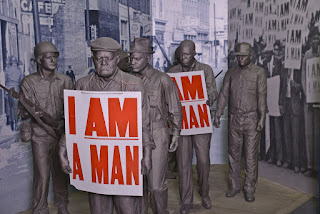The word “inauguration” (New Oxford Dictionary) means, “The beginning or introduction of a system, policy or period; the formal admission of someone to office; a ceremony to mark the beginning of something.”
Next week our country will hold its Presidential Inauguration. It will be in the foreground briefly against
a current backdrop of political turmoil, last week’s violent assault on the U.S.
Capitol, and a worldwide health crisis. And more turmoil, more attacks are
threatened.
It is my prayer that on that day we can begin to heal and
find ways to mend our chasms of deep division. We all bring converging ways of
thinking, believing and being.
There is a tiny city (population 780) in Western
Pennsylvania, in a borough of Somerset County, known as “Confluence.” It is named as such because it is a place where
three rivers come together: the Casselman, Laurel Hill Creek and Youghiogheny
rivers. When these rivers meet, there is turbulence but also the benefit of
becoming a bigger river, which makes this area a great place to do fishing and
boating.
Great things can happen if we flow in the same direction
Divergent political thoughts (be they Republican, Democrat or Independent) often create turbulence. If we can somehow manage to flow in the same direction, like these rivers, some big—indeed, great—things can happen in the future.
Everyone thrives when we work together as a nation for the
good of all. At the end of the day, rivers are all made of the same water; and
we are all God’s children made in the same image and likeness of God. We are
all different by the design of our Creator, so that we can accomplish all that
is needed through our different gifts and passions.
On January 20, 2021, may we inaugurate not just a new President
or his new policies, but a new period of respect and cooperation that will yield
peace and prosperity for all. May that be especially true for those who are
poor and oppressed, who live in the dim margins of our nation’s bright political
and economic fortunes.
This can only be accomplished as we seek to do the will of
God, acknowledging and using the resources of the Holy Spirit. Psalm 85:10
expresses my prayer for the future of our country: that “steadfast love and
faithfulness meet and righteousness and peace kiss each other.” May it be so!






